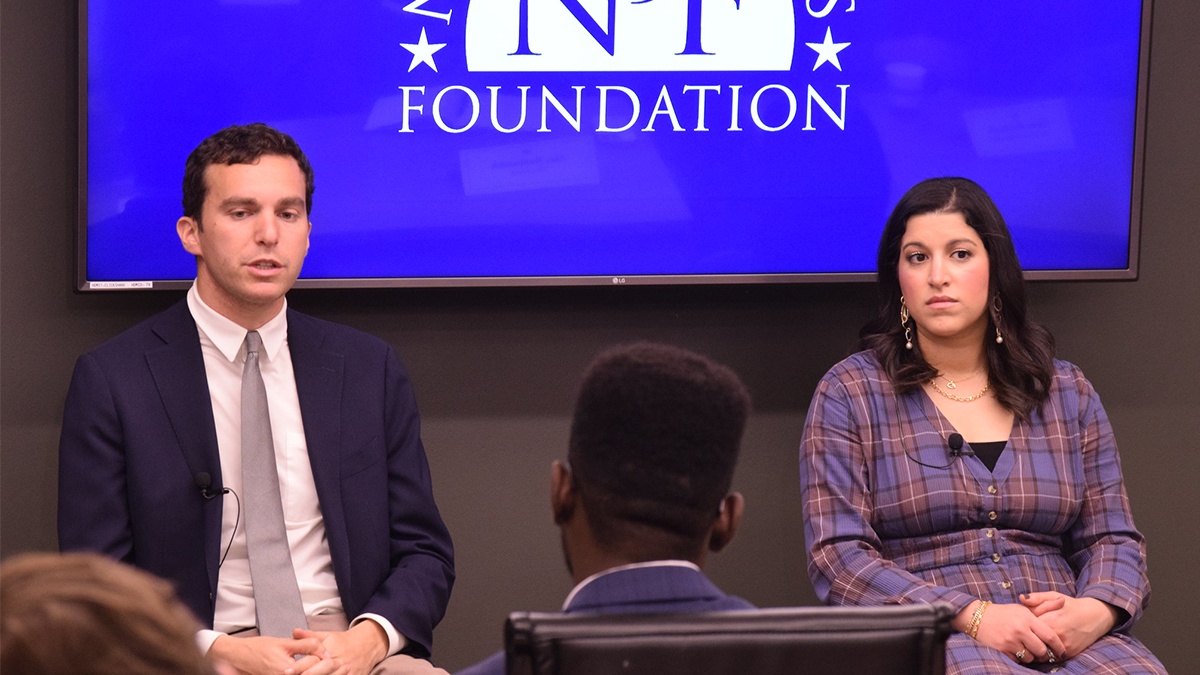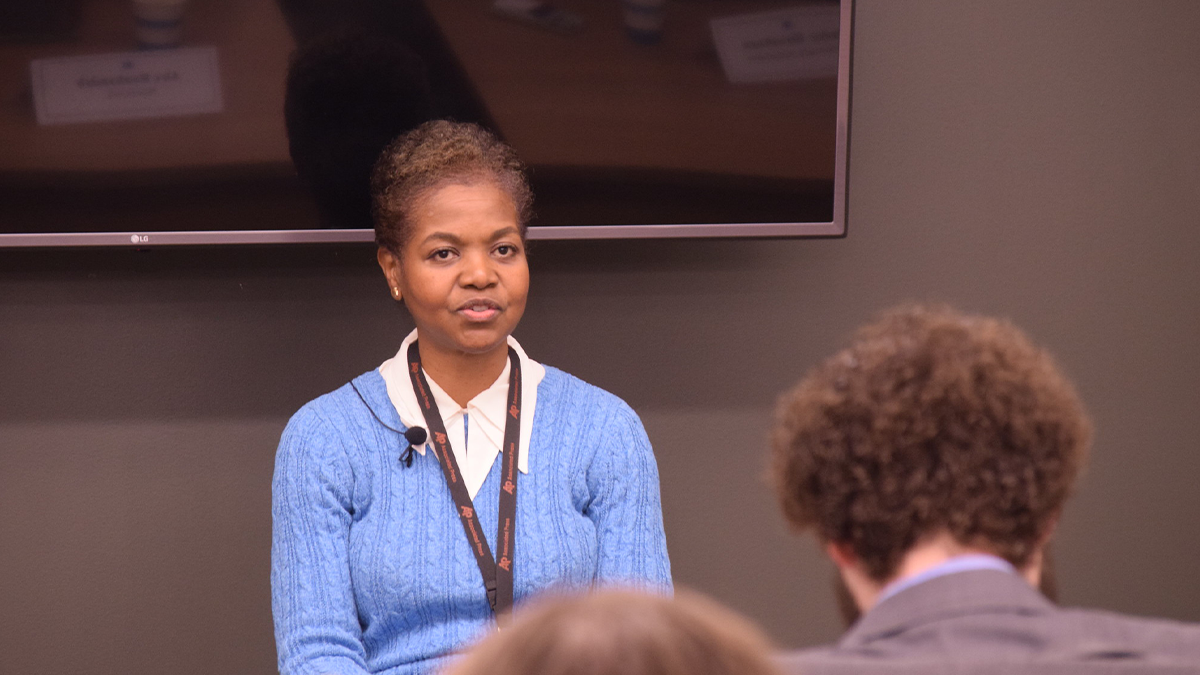As the son of Nigerian immigrants who was born in Tallahassee, Florida, Toluse Olorunnipa says he got an early education in how policies affect families. He watched as his parents navigated life on a new continent in search of stability for their family.
It wasn’t always easy, Olorunnipa said during the April 2024 virtual training for National Press Foundation Widening the Pipeline fellows. Employment and educational doors didn’t exactly swing open, and sometimes his parents were taken advantage of in the process. “They really relied on journalists and journalism to get them information that they would need to make the right choices about how to structure the family dynamics and how to navigate the workplace and figure out what’s happening in current events,” he said.
Because they were avid news consumers, Olorunnipa eventually chose journalism as his own career pursuit. Years later, his path led to the Washington Post, where he is White House Bureau Chief. But the first steps came in 2009 during a stint as a general assignment reporter for the Miami Herald. In 2012, Olorunnipa was offered the opportunity to cover the Florida legislature in his hometown of Tallahassee. It was a tough decision to make.
“When I started to think about what the role would be like, I didn’t see a lot of people that looked like me doing what I was being asked to do, covering politics,” he said. “There weren’t a lot of minorities that were the subjects to be covered. The politicians were not people who looked like me, the previous political reporters, the person I was taking over for and the other people that were working covering the same beat. So, I just didn’t see the model for what it would look like for someone like me to be in these spaces.”
Ultimately, Olorunnipa couldn’t resist the seemingly perfect timing of the offer.
“President Obama was running for reelection. Florida was going to be an incredibly important state. I would get to travel, I would get to experience the height of political reporting for a lot of people as the campaign, the presidential campaign (was underway), and so I would be a part of that. Not just covering local politics but really keying into the national scene.”
Olorunnipa said he fell in love with political reporting fairly quickly, but admits that the early challenges were significant.
“I had a lot of the policy experts that I was covering really challenge my grasp of the information, which isn’t a normal thing that they might do,” he said. “It was more direct and personal and a more direct challenge of who I was. It was easy for me to connect that to my race as well as my youth at the time in just sort of the sense that, what is this person who looks like this doing in this space where we don’t typically see young Black men really getting into policy and really delving in and covering with an aggressive eye.”
Ultimately, Olorunnipa was able to leverage that dismissiveness. People who thought he wasn’t smart enough for the job were probably more likely to let their guard down. One of his early policy reporting coups involved a state-run insurance company charged with helping Floridians affected by natural disasters. Olorunnipa employed a time-honored journalistic strategy: follow the money.
“I found that in addition to doing some shady things more broadly, there were a lot of governance problems in that company,” he said. “There were people who were involved in sexual harassment in the company and they were being given a slap on the wrist. There were people who were spending a ton of money on going to conferences and fancy locations where they’re spending all this taxpayer money and not really doing anything for the people who they were supposed to be insuring.”
The stories landed on front pages throughout the state–likely shocking the people who had written off Olorunnipa as unqualified for his beat. “I was able to really break that story wide open and do several stories on improprieties at this state-run insurance company that nobody had really been paying attention to.
Years of state political reporting, followed by national and presidential campaign coverage in the U.S. and abroad, strengthened Olorunnipa’s expertise. He also nurtured ties with reporter Robert Samuels, a former Miami Herald colleague who had moved to the Washington Post. In 2019, that relationship led to an offer to lead the paper’s White House bureau. It also yielded a 2023 Pulitzer Prize for non-fiction for the book co-authored by Olorunnipa and Samuels, “His Name is George Floyd.”
Though political reporting can be stressful, Olorunnipa encouraged early career journalists of color to stay open to pursuing that beat.
“We need more people that have diverse experiences, different backgrounds, different cultures, different immigration statuses, different parts of the country, different religions,” he said. “We need all kinds of diversity, and we really need people to make our coverage of politics more nuanced and more real. Because we get into this spirit of horse race coverage where a lot of times it’s divorced from the actual impact on people.”
“So, I would encourage more people to get into political journalism and really jump into it feet first and bring your own perspective, your own background to the table because we need it.”
Access the full transcript here.
The Widening the Pipeline Fellowship is sponsored by the Evelyn Y. Davis Foundation and Lenovo. NPF is solely responsible for the content.








